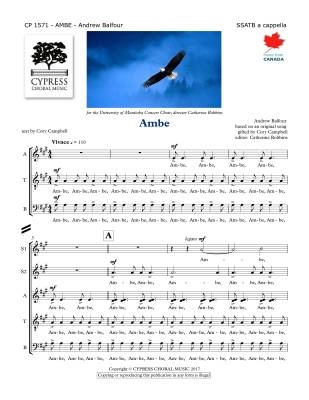Opens in a new window
Cypress Choral Music Ambe - Ojibway/Balfour - SSATB
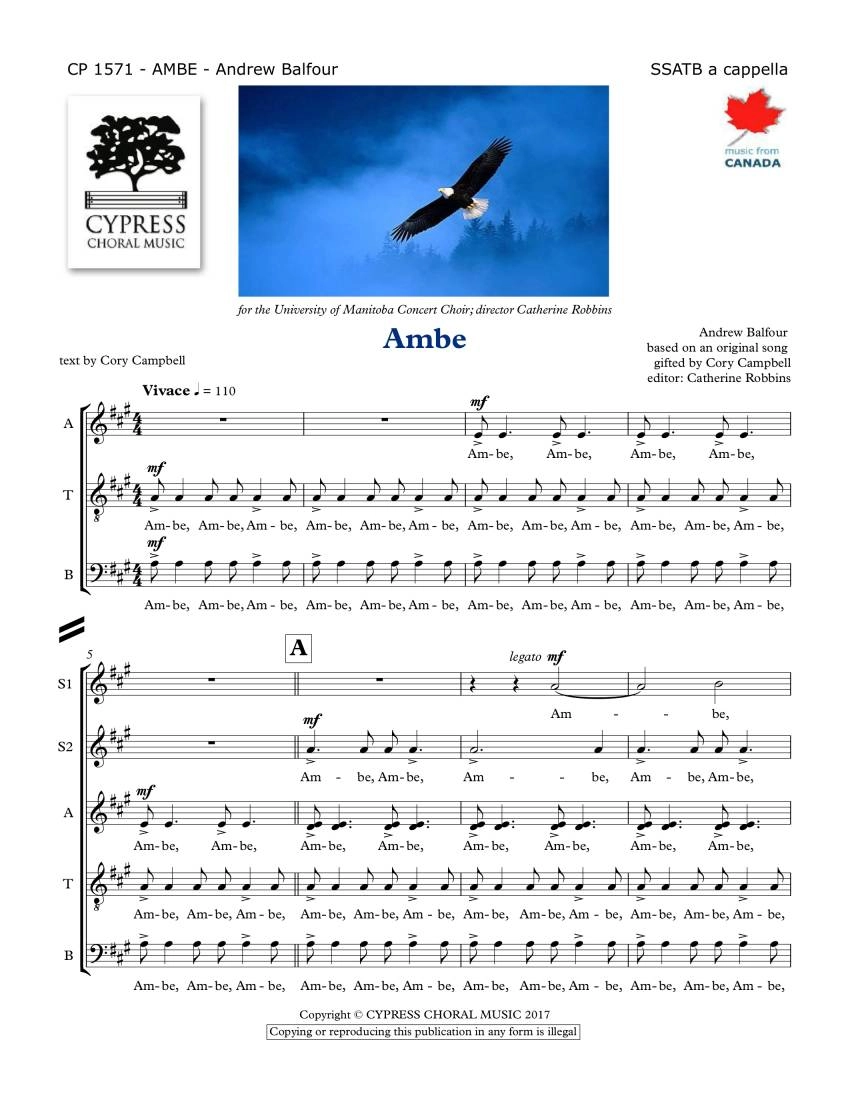
Additional Photos:
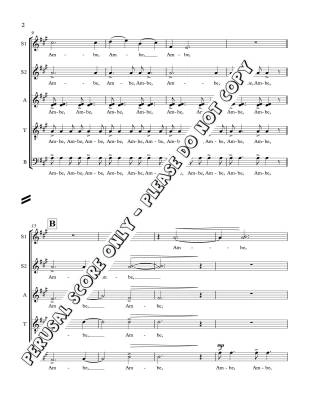
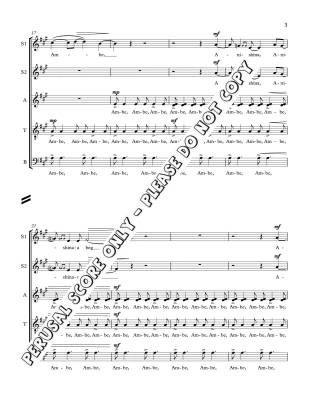
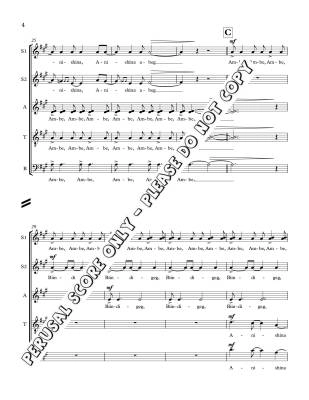
- Author/Composer:
- BALFOUR, ANDREW
- Instrumentation:
- SATB A CAP
- Model #:
- CP1571
Format: Choral Octavo
Voicing: SSATB a cappella
Choirs will love the rhythmic drive and energy of this meaningful composition. The Ojibway text means "Come in, two-legged beings. Come in all people. There is good life here."
This piece is based on an original song in Ojibway that was gifted by traditional drummer and singer Cory Campbell to Andrew Balfour and the University of Manitoba Concert Choir. Cory describes the song as "a call to the people to the ceremonial way of life or to the red road or, quite frankly, to whatever we have going on, because everything happens with spirit and in spirit."
Andrew has created an original composition inspired by Cory's song which uses the same text and echoes the steady rhythm of the drum, unifying the piece. The melodies of Andrew's piece are all original but hints of Cory's song remain. For Andrew, the steady beat throughout represents the heartbeat of Mother Earth and the lyrical first soprano melody that emerges from this rhythmic texture at measure seven conveys the powerful totem of the eagle which represents the teaching of love, wisdom, and strength.
The accompanying recording of Cory singing his original song is provided for conductors to hear the pronunciation of the text and to share with choristers the inspiration behind the composition. It is not meant to be reproduced by choirs or other singers without Cory's permission unless it is being used in a ceremonial manner.
Many dialects and local writing systems for Ojibwe exist. The pronunciation for the text is based on the dialect spoken on Sagkeeng First Nation in Cory's home province of Manitoba. Specifically, the pronunciation of the word Anishinaabeg [anis:iʌnɑ:bek~g] or phonetically, a-nis-ee-uh-nah-bek/g, reflects one of the teachings that have come to Cory involving the etymology of the word in representing not only the Ojibwe people, but people of all nations, or two-legged beings.
Media
Sound Sample
Press play to listen
Q & A
There are currently no questions for this product.
Reviews
There are currently no reviews for this product. Be the first to write one!



